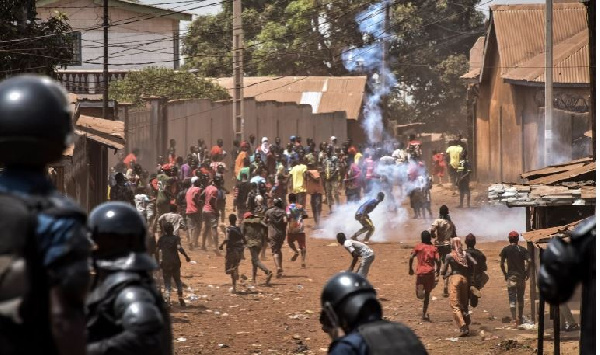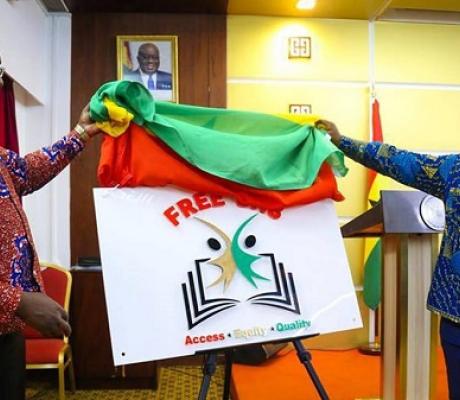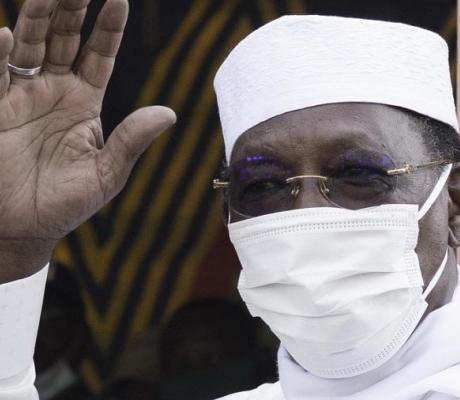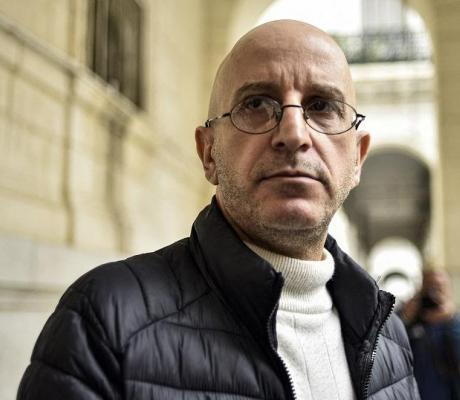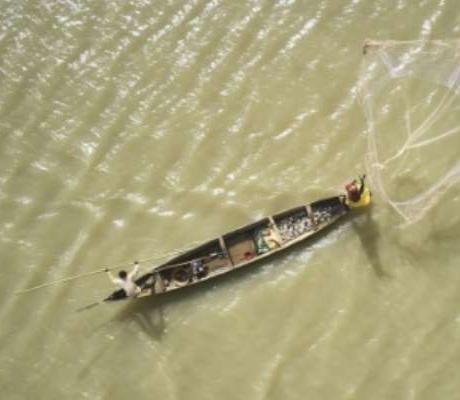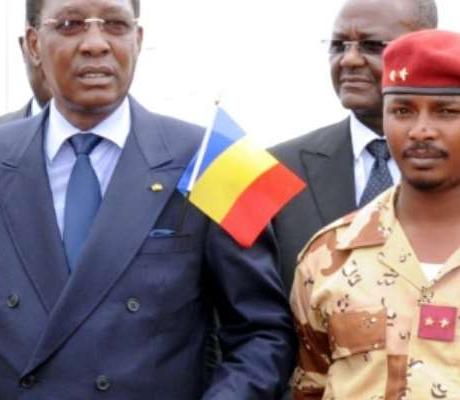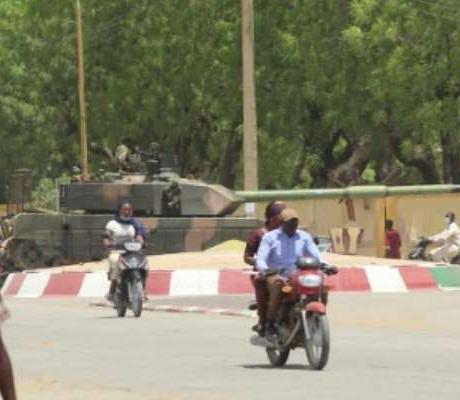Veteran Guinea President Alpha Conde’s hugely controversial bid to extend his grip on power for a third term has sparked a year of harshly repressed protests in the West African country, costing dozens of lives.
The octogenarian incumbent’s candidacy was confirmed after a referendum in March – a vote that raised concerns that Guinea will follow in the footsteps of other African nations whose rulers refuse to cede power.
Conde faces former prime minister and main opposition leader Cellou Dalein Diallo in Sunday’s vote.
Opposition parties had organised widespread street protests against the referendum, which were met with a harsh crackdown by security forces.
On October 7, 2019, an opposition coalition, the National Front for the Defence of the Constitution (FNDC), which includes trade unions and civil society groups, calls for demonstrations against an eventual third term in office for Conde.
The opposition suspects that Conde, 82, wants to change the constitution to allow him to stand again in 2020.
Enormous demonstrations
On October 14, on the first day of protests, five people are shot dead in clashes in the capital, Conakry, between police and protesters, according to the opposition.
A small number of people took part in scattered demonstrations, but security was out in force, breaking up makeshift barricades and making some arrests as protesters burned tyres and threw stones.
Al Jazeera’s Nicolas Haque, reporting from Conakry, said the usually bustling city centre resembled a ghost town, with most people choosing to stay indoors to avoid danger.
Several other enormous demonstrations follow, organised by the FNDC, sometimes involving tens of thousands of people.
While the opposition says its movement is peaceful, Conde accuses it of seeking to sow disorder and cracks down harshly on protests.
Amnesty International denounces the excessive use of force by the security services, bans on peaceful demonstrations, arbitrary arrests and cases of torture.
‘Constitutional coup’
In December, Conde announces a new draft constitution.
Opponents say the draft was crafted to get around the country’s two-term presidential limit and denounces a “constitutional coup”.
In January 2020, the opposition urges Guineans “to mobilise massively and everywhere”.
Clashes break out between protesters and security forces in several towns across the country. Police headquarters are ransacked and official buildings attacked.
Contested referendum win
On March 22, Guineans vote to back the new constitution by more than 90 percent at a referendum boycotted by the opposition.
The day of the vote is marred by violence, with scores of polling stations ransacked across the country. Authorities report 30 dead in the second city of Nzerekore.
Conde’s RPG party wins legislative elections held at the same time.
The opposition rejects the results and the United States, European Union and former colonial power France cast doubt on the vote’s credibility.
Conde a candidate
On August 6, the RPG asks Conde to be its candidate at the presidential election.
On September 2, ending months of ambiguity, he confirms he will stand.
The opposition promises to stage new protests.
On September 9, a split emerges within anti-Conde ranks and Diallo is sidelined for deciding to take part in the election, rather than boycott it.
‘At war’
In September, Conde makes combative campaign speeches, some in his native Malinke language, saying in one “this is not just an election. It’s as if we were at war.”
Diallo, who is from the larger Fulani community, accuses Conde of exploiting ethnic divisions.
On September 29, protesters and security forces clash in Conakry, with a man shot dead during protests a day later in the central city of Dalaba during an election campaign visit by the prime minister.
In early October, Amnesty says at least 50 people were killed and 200 others injured during protests against Conde between October 2019 and July 2020. The opposition says more than 90 people died in the crackdown, a figure rejected by the government.
On October 7, the United Nations voiced alarm at ethnically charged hate speech flourishing in the run-up to the election, which is feared could lead to violence.
Source: aljazeera.com

